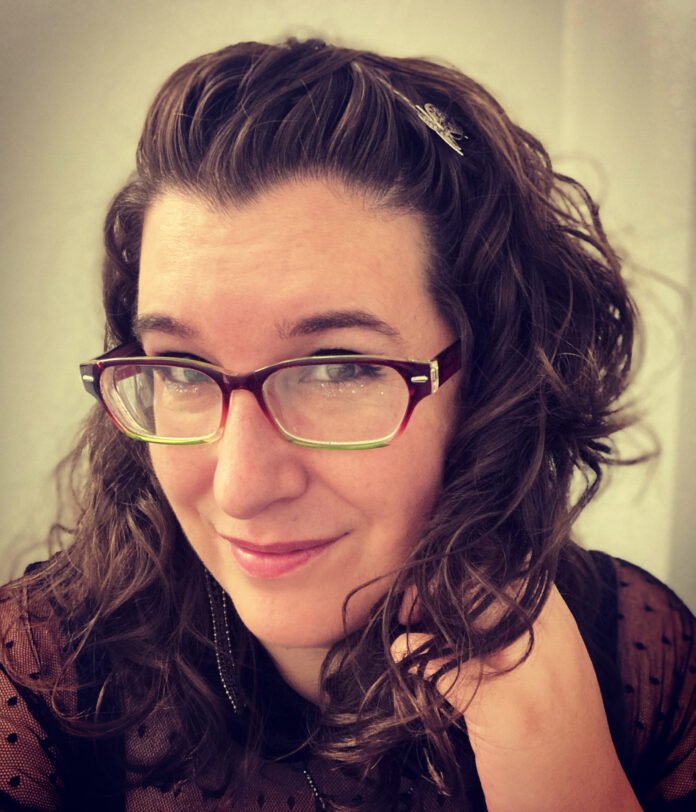I lay in bed, having just canceled birthday plans with a close friend, overwhelmed by the guilt that followed. My mind spins, flooded with self-doubt. Should I have pushed my body to go, even though I’m exhausted? Am I a bad friend for canceling the plans? Am I disabled enough to justify this decision?
“Am I disabled enough…?” It’s a question that has echoed in my mind countless times over the past decade of living with chronic illness.
When I first became sick, I was really, really sick. I spent most of my days in bed, and when I wasn’t, I was probably on the couch. When I had to navigate the outside world, I always used a rollator. It was obvious that I was disabled, yet I still grappled internally with the question: Am I truly disabled? Am I disabled enough?
Over the years, I’ve received new diagnoses and treatments, and my symptoms have gradually improved. I no longer use a rollator and only use my cane sporadically. I’m no longer bed-bound, and recently, I even returned to full-time work. My “invisible illness” is more invisible than ever. As these shifts have occurred, I’ve found myself questioning again: Am I truly disabled? Am I disabled enough?
Speaking with others who live with chronic illness and disability, I know I’m not alone. So many of us grapple with these feelings of self-doubt.
Why Do We Feel This Way?
Several factors contribute to these feelings of inadequacy. There is societal pressure to “suck it up,” “toughen up,” and push through. We feel like we should be able to do the thing — whether because of societal messaging or because we could do it before becoming sick or disabled. “Recalling [good] days makes me think that, when flares arise, it’s just a phase, and I’ll overcome it, like an acute injury that will heal. It doesn’t really work like that, though,” says Dahlia Kash, who lives with multiple health issues including fibromyalgia and rheumatoid arthritis. This leaves us doubting ourselves.
For some, an invisible disability makes them feel unseen. Carol Anderson, who lives with sleep disorders and mental illness, shares, “I feel not disabled enough because I don’t feel ‘seen’ by others.” Others compare their experiences to those who “have it worse” or to stereotypical ideas of what disability looks like. Amber Bayker, who lives with hearing loss, says they compare themselves to others and end up feeling “like if I own my disability, it’s gonna detract from [other disabled people]. Like, there’s not enough adaption and patience to go around for everybody who is not typical, so my disability shouldn’t take precedence over somebody else’s.”
What Does It Mean to Not Be “Disabled Enough?”
But what does “disabled enough” even mean? What are we really saying? Often, these feelings carry a subtext — not disabled enough to ask for accommodations, to seek help, to complain about symptoms, to cancel plans, or to say no.
Much of this self-doubt is rooted in internalized ableism, where we absorb negative societal messages about disability. We live in a culture that often equates disability with laziness, urges us to push through struggles, and discourages us from taking up space. These narratives fuel an inner dialogue that causes us to question our worthiness.
Asking if we are disabled enough is, in essence, asking if we are worthy of access. Anderson reflects, “I think, ‘I should be able to do this, I should be able to handle this. I don’t want to burden others by asking for help or a change in plans.’ There is shame and guilt around both having a disability and asking for help or accommodations.” Similarly, Bayker avoids asking for help. “I do so much in my world to ensure that other people don’t have to worry about my disability,” they share.
When I reflect on the times I’ve questioned my disability, it always comes back to this: What I’m really asking is whether I see myself as deserving of having my needs met and worthy of accessibility.
Pushing Through Self-Doubt
So, how do we move past this self-doubt and begin to see ourselves as “disabled enough”? How do we allow ourselves to take up space and acknowledge our needs?
Bayker emphasizes the importance of self-acceptance. “[B]eing more comfortable with myself and okay with myself helps me hold space for myself as a whole — even if my whole is not what is considered whole in our society.”
Similarly, Kash highlights the value of acceptance. “It’s been a hard road to face the fact that my body doesn’t do what it once did,” they share. “Once I open up and genuinely allow and utilize the help, I can do so much more.”
Coming to terms with our bodies, especially when symptoms and abilities are in constant flux, is a challenging and ongoing journey. Battling internalized ableism and facing external ableism can feel relentless. However, connecting with others who share these struggles can make us feel less alone. Together, we can move forward, knowing we are disabled enough and deserving of acceptance.
Want to Get More Involved with Patient Advocacy?
The 50-State Network is the grassroots advocacy arm of CreakyJoints and the Global Healthy Living Foundation, comprised of patients with chronic illness who are trained as health care activists to proactively connect with local, state, and federal health policy stakeholders to share their perspective and influence change. If you want to effect change and make health care more affordable and accessible to patients with chronic illness, learn more here.

